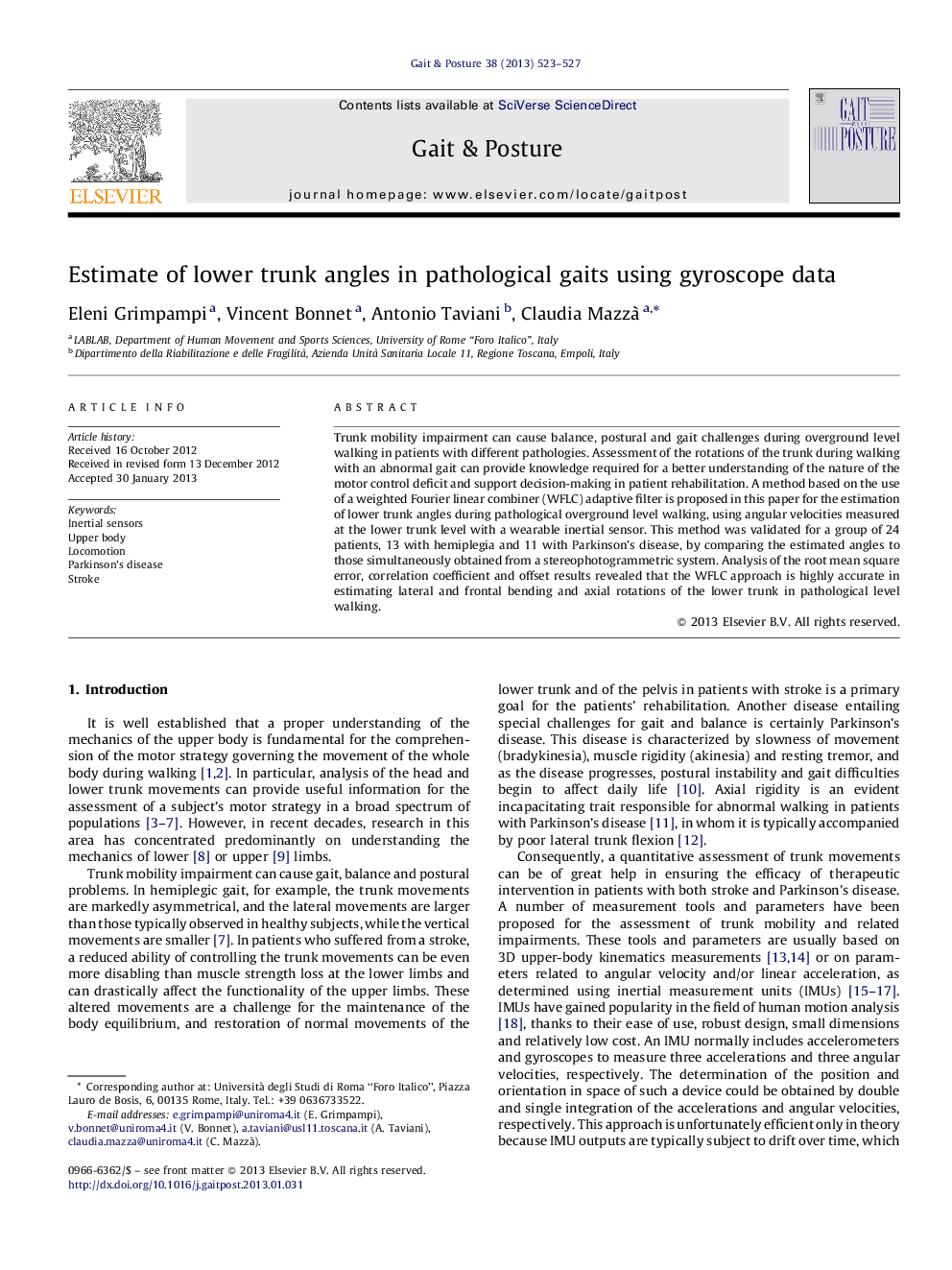| Article ID | Journal | Published Year | Pages | File Type |
|---|---|---|---|---|
| 6206655 | Gait & Posture | 2013 | 5 Pages |
Trunk mobility impairment can cause balance, postural and gait challenges during overground level walking in patients with different pathologies. Assessment of the rotations of the trunk during walking with an abnormal gait can provide knowledge required for a better understanding of the nature of the motor control deficit and support decision-making in patient rehabilitation. A method based on the use of a weighted Fourier linear combiner (WFLC) adaptive filter is proposed in this paper for the estimation of lower trunk angles during pathological overground level walking, using angular velocities measured at the lower trunk level with a wearable inertial sensor. This method was validated for a group of 24 patients, 13 with hemiplegia and 11 with Parkinson's disease, by comparing the estimated angles to those simultaneously obtained from a stereophotogrammetric system. Analysis of the root mean square error, correlation coefficient and offset results revealed that the WFLC approach is highly accurate in estimating lateral and frontal bending and axial rotations of the lower trunk in pathological level walking.
⺠Assessment of trunk rotations during walking can support clinical decision-making. ⺠Inertial sensors can be used to simply measure lower trunk angular velocities. ⺠Weighted Fourier linear combiners (WFLC) can estimate angles from angular velocities. ⺠The WFLC method provided accurate estimates in both hemiplegic and Parkinsonian gaits.
